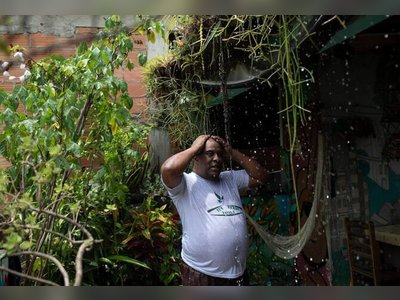
Australian Mushroom Murderer Appeals Conviction for 'Substantial Miscarriage of Justice'
Erin Patterson, convicted of killing three with toxic mushrooms, claims trial irregularities.
SYDNEY: Australian convicted murderer Erin Patterson has alleged a ‘substantial miscarriage of justice’ occurred during her trial and conviction for the murder of three people using toxic mushrooms.
Court documents made public on Wednesday revealed that Patterson's appeal of her guilty verdicts had been accepted by the Court of Appeal, though the state of Victoria’s Court of Appeal noted it had not yet formally acknowledged her bid to overturn her convictions.
Patterson, 51, was sentenced to life in prison with parole for lacing a beef Wellington with poisonous fungi during a lunch at her home in 2023.
The victims included her estranged husband's parents, aunt, and uncle, with three deaths resulting from the incident.
Local media outlets such as national broadcaster ABC and the Sydney Morning Herald reported on Monday that Patterson had filed an appeal of her guilty verdicts.
The grounds for her appeal document outlined several alleged ‘substantial miscarriages of justice’ during her trial.
These included claims of a 'fundamental irregularity' affecting the jury’s deliberations, accusations of unfair and oppressive cross-examination by the prosecution, and assertions that evidence presented to the court was either irrelevant or not adequately considered.
Furthermore, Patterson requested that she be exempt from physically attending any oral hearings pertaining to her case.
Patterson maintained throughout a lengthy trial that the accidental contamination of the dish with death cap mushrooms – known as the world’s most lethal fungus – occurred unknowingly.
However, a 12-person jury found her guilty in July of murdering her husband Simon's parents, Don and Gail Patterson, as well as his aunt Heather Wilkinson, at her home in Leongatha, Victoria.
She was also found guilty of attempting to murder Heather's husband, Ian.
Her sentence, handed down in September, allowed for parole eligibility after 33 years.
However, the prosecution subsequently appealed this ‘manifestly inadequate’ sentence.
As this case continues to develop through the appeals process, it remains subject to further legal scrutiny and interpretation.
Court documents made public on Wednesday revealed that Patterson's appeal of her guilty verdicts had been accepted by the Court of Appeal, though the state of Victoria’s Court of Appeal noted it had not yet formally acknowledged her bid to overturn her convictions.
Patterson, 51, was sentenced to life in prison with parole for lacing a beef Wellington with poisonous fungi during a lunch at her home in 2023.
The victims included her estranged husband's parents, aunt, and uncle, with three deaths resulting from the incident.
Local media outlets such as national broadcaster ABC and the Sydney Morning Herald reported on Monday that Patterson had filed an appeal of her guilty verdicts.
The grounds for her appeal document outlined several alleged ‘substantial miscarriages of justice’ during her trial.
These included claims of a 'fundamental irregularity' affecting the jury’s deliberations, accusations of unfair and oppressive cross-examination by the prosecution, and assertions that evidence presented to the court was either irrelevant or not adequately considered.
Furthermore, Patterson requested that she be exempt from physically attending any oral hearings pertaining to her case.
Patterson maintained throughout a lengthy trial that the accidental contamination of the dish with death cap mushrooms – known as the world’s most lethal fungus – occurred unknowingly.
However, a 12-person jury found her guilty in July of murdering her husband Simon's parents, Don and Gail Patterson, as well as his aunt Heather Wilkinson, at her home in Leongatha, Victoria.
She was also found guilty of attempting to murder Heather's husband, Ian.
Her sentence, handed down in September, allowed for parole eligibility after 33 years.
However, the prosecution subsequently appealed this ‘manifestly inadequate’ sentence.
As this case continues to develop through the appeals process, it remains subject to further legal scrutiny and interpretation.










